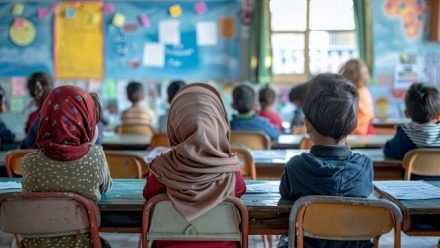The Gender Revolution in an Islamic Society: Stalled or Still Unfolding? Cohort Dynamics in Gender Role Attitudes in Pakistan from 1945 to 1994

The recent literature on gender role attitudes (GRA) in western societies suggests that after achieving greater egalitarianism the upward increase in GRA has plateaued. However, evidence of this plateau remains scarce globally, especially within Islamic societies. In this paper, we examine the nature and degree of change in GRA within Pakistan, a nation undergoing two contrasting processes of social development. On one hand educational expansion has consistently unfolded over past decades, while on the other hand the country has been exposed to religious revival, particularly during the 1979-1988 Islamisation period, making the direction of change unpredictable.
A comparison is made across cohorts born from 1945-1994 using a pooled cross-section analysis of the World Value Survey (WVS), with Pakistan participating four times (1997-2018, N=5400). Drawing from modernisation theory, we incorporate education and religiosity as mediating variables between birth cohort and GRA in our design, assuming cohort replacement predominantly influences the link between education, religiousness and GRA. Viewed across all birth cohorts we find that later born cohorts, on the whole, exhibit greater egalitarianism.
However, contrary to the hypothesis of generational change, we find a trend reversal in GRA for cohorts born after 1975, who were more conservative. While education substantially mediates GRA, religion shows only a minor effect. Notably, the backlash in GRA cannot be explained by an increased religiousness induced by Pakistan’s Islamization since the early 1980’s. The WVS-PK data used in these analyses pose severe methodological challenges: they are incomplete from a cross-wave perspective and have high and heterogeneous unreliability. We overcome these challenges using a partially equivalent latent-variable measurement model for both GRA and Religiousness that is estimated with split-half parceling.
Harry B.G. Ganzeboom (1953) has been Professor of Sociology and Social Research Methodology at VU University Amsterdam since 2002. He was educated at Utrecht University, where he obtained his BA (1975), MA (1978) and PhD (1984). In 1986-1990 he held a postdoctoral Huygens Fellowship and then became Associate Professor at Radboud University Nijmegen (1990-1993), before being appointed as Professor of Sociology at Utrecht University (1993-2002). He has been the National Coordinator of the European Social Survey in the Netherlands (2006-2009) and the National Representative for the Netherlands in the International Social Survey Programme ISSP (2004-2023). Apart from cross-national survey research, his main interests are in the study of comparative status attainment and intergenerational social mobility. He is the author of the International Socio-Economic Index [ISEI] of occupational status, the International Standard Level of Education [ISLED] scale and other harmonization tools for measurement in comparative stratification research. Other research interests include arts consumption and life-style differentiation; gender roles and gender role attitudes; and international migration. His other methodological specializations are structural equation modelling and categorical data analysis. His complete CV, publications, presentations, teaching materials and survey data harmonization tools are available at www.harryganzeboom.nl.
Join Zoom Meeting
https://anu.zoom.us/j/82628042953?pwd=rj0XiXiE8XdoxOyeHmSti6yaFT205j.1
ID: 826 2804 2953
Password: 105940








